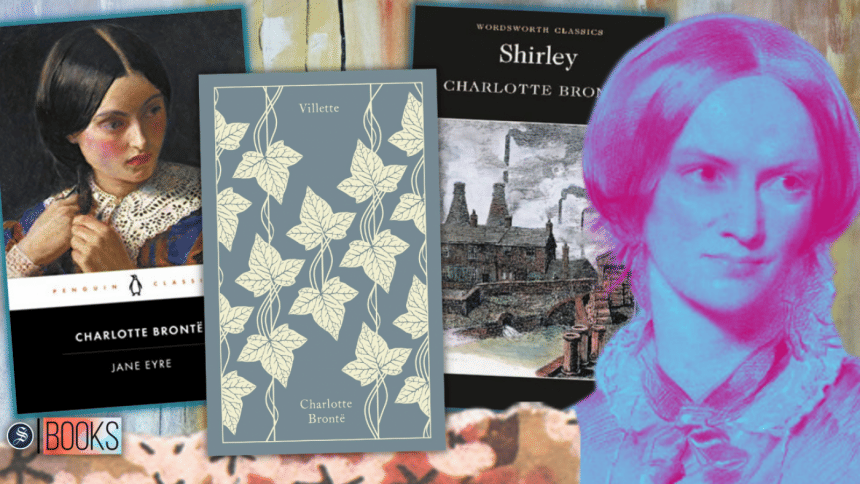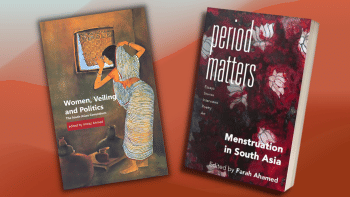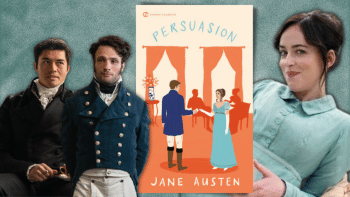Charlotte Brontë's unconventional heroines

"Do you think, because I am poor, obscure, plain, and little, I am soulless and heartless? You think wrong! —I have as much soul as you, —and full as much heart! And if God had gifted me with some beauty and much wealth, I should have made it as hard for you to leave me, as it is now for me to leave you. I am not talking to you now through the medium of custom, conventionalities, nor even of mortal flesh; —it is my spirit that addresses your spirit; just as if both had passed through the grave, and we stood at God's feet, equal, —as we are!"
In my formative years, I chanced upon this little book with mint-green borders. In the centre, there was a picture of a pale little girl with the name Jane Eyre on top. After I had devoured the book at one go, the very next year I realised it was included in my school curriculum as well. And so I read it again. I read it till it became a habit to come back to this book every two years or so. For a young girl, young Jane had much to teach.
From challenging the patriarchal norms of Victorian society to asserting her independence, agency, and morality, Charlotte Brontë was able to shape a character that is endlessly captivating—a woman who can resonate with a 14-year-old and 25-year-old alike, even today.
"I am no bird; and no net ensnares me; I am a free human being with an independent will, which I now exert to leave you," Jane says when she finds out that Mr Rochester was already married and had hidden this from her, who is his fiancé. Jane's sense of morality and ethics do not allow her to continue with the wedding and in that, she asserts her autonomy over Rochester's authority. It's the central theme of the novel—Jane's desire for independence and her refusal to be defined or controlled by a man. The novel was published in 1847, at a time when women's roles in society were strictly limited and their opportunities for independence severely restricted. However, the struggle for women's rights and gender equality continues to this day. Many women today face similar challenges to those that Jane faced during that time, like discrimination, unequal pay, and limited opportunities for advancement in their chosen careers.
Jane Eyre has introduced most people to Brontë's work, but it was upon venturing further into the depths of her writing that I really understood the brilliance of her mind. Her third novel, Villette (first published 1853), underlined the inner workings of a woman's mind and through this immensely introspective novel, one understands not just the narrator and her journey, but also the stringent gender roles present in the deeply patriarchal society.
Villette's narrator, Lucy Snowe, consistently struggles to make something out of her life and to find a comfortable means of survival on her own. But her career opportunities seem limited. "Courage!", she would utter to herself as she struggled to traverse these lands.
Brontë's books have been a constant for me throughout my life and when I was trying to choose a career path of my own, this book somehow made its way to my table. Although larger in size now than when I had discovered Jane Eyre, I found myself struggling, all the same, to claw out of the box that I've been put into.
The novel is famed for its commentary on isolation and loneliness. With Lucy Snowe, you meet a reserved and insightful heroine. She keeps to herself to the extent that even the reader is fully unaware of all the proceedings of her mind and her life. Sometimes, she'll indulge us with bits and pieces of information but only with half the story, leaving the conclusion open to each reader's interpretation.
"To follow, to seek out, to remind, to recall—for these things I had no faculty."
Unlike Jane Eyre, Lucy Snowe is not outspoken or courageous in the traditional sense. Even when the person she loved was seemingly walking away, she could not gather the courage to confront or speak her mind. But despite her unremarkable exterior, it's her rich inner world, her self-awareness and her resilience that illustrate her empowered nature. Characters such as Lucy Snowe rarely ever get the limelight in today's very vociferous world. This is evident in the movie adaptation of Jane Austen's Persuasion, where the soft spoken Anne Elliot is turned into a sassy caricature because the contemporary world seems to not understand the importance and charm of introspective women.
As I dove further into Brontë's work, I discovered Shirley. Here, you meet the wealthy heiress Shirley Keelder. And unlike the previous protagonists, through her, you get to see the world from the perspective of someone born into wealth. Exploring women's various roles in society is a common theme in Brontë's work and throughout Shirley, she explores the expectations placed on a woman based on her social class. You see the titular character challenging traditional gender roles by choosing to remain unmarried and run her own business.
A significant fact about the novel is that the name, Shirley, originally used to be a man's, but the book's popularity established it as a woman's name. It is explained as being chosen by the character's father as a way of asserting his desire for a male heir, as he had been disappointed in having only daughters. By turning this around, Brontë underscores the societal expectations of the time, where having a son was seen as more valuable and desirable than having a daughter. The writer essentially makes a bold statement about gender roles and societal expectations of the time.
From the iconic character of Jane Eyre, to the introverted and introspective Lucy Snowe, and the unconventional Shirley Keelder, Brontë's heroines have embodied the values and principles of the feminist movement long before it became a mainstream social and political movement. While her work is often seen as a reflection of the Victorian era, her themes and messages remain relevant today, as women continue to fight for gender equality and empowerment.
Tasnim Odrika is a biochemist by day and a writer by night. Reach her at [email protected].

 For all latest news, follow The Daily Star's Google News channel.
For all latest news, follow The Daily Star's Google News channel. 










Comments